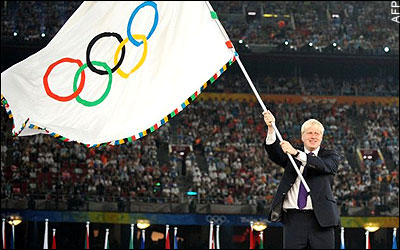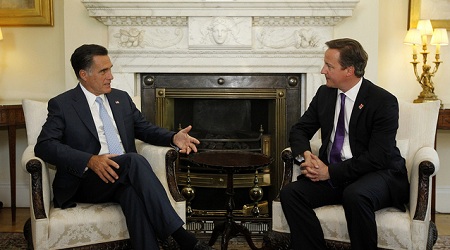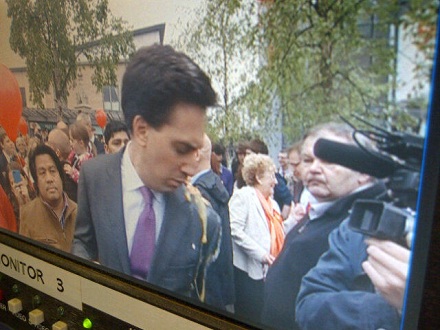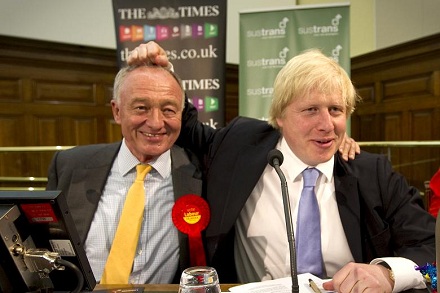Hilarious. This is why Boris Johnson won the mayoral election of London initially in 2008 as a Conservative and was reelected in May 2012, despite a strong Labour wind, defeating former London mayor Ken Livingstone by a 3% margin.![]()
Also, forget the goofy one-eyed blobs, Boris is the true mascot of the 2012 Summer Olympics. From the minute we saw him waving the Olympic flag at the end of the 2008 Summer Olympics in Beijing, with his jacket opened, signalling London’s much looser approach to the Games (compared to the tightly synchronized Beijing Games), you just knew there would be no other way:
He’s rarely on-message (although he can show discipline when he wants).
He’s a bit of a goofy Etonian toff, floppy hair and all, but he’s probably the UK’s most popular politician today, with the possible exception of Scotland’s first minister, Alex Salmond.
As I’ve noted, he may one day be a British prime minister, as he certainly has more personality than the entire front bench of the current Tory (well, Coalition) government combined. It’s thought that David Cameron, then just newly enshrined as the new Tory leader, sent Boris off to run for London mayor to get him out of his hair as he plotted the Tories’ own return to Westminster. But given the current trajectory of Cameron’s government (with many blaming George Osborne’s* austerity policies as the main cause of the UK’s double-dip recession), it is not unthinkable that Boris may well lead the Tories in the next general election cycle or two.
Certainly, the exposure from hosting the 2012 Games will do him no harm (especially given that businessman Mitt Romney transformed his leadership of the 2002 Winter Games in Salt Lake City into a stint as Massachusetts governor and into the Republican Party’s presidential nomination in 2012).
H/T to Andrew Sullivan, who calls Boris the “un-Romney”.
* George Osborne serves as chancellor of the exchequer — essentially, the UK’s finance minister.







